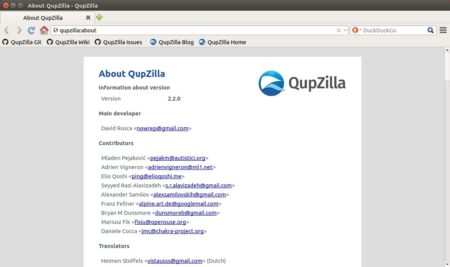

Which means I would be even less interested. And there is also no reason to write our own apps, because that would just be Yet Another Linux Distribution And Desktop, and there are far too many of those already.Īlso personally I find the Qt APIs quirky and confusing (mainly because I spent far too much time writing apps using the BeAPI and it’s hard to relearn things). Nothing fancy but any of the four flavors Chrome, Linux, Mac, and Windows. If the apps are written in Qt, there is no reason to write our own kernel. Falkon browser formerly known as QupZilla was first released back in 2010 and. Essentially throwing away the one thing that makes Haiku a relevant project. Which means, we would have to force Qt to do what we want it to, and have it interact with our Kernel (not designed for it) and do things the way we want on the UI side (also not designed for it). You are suggesting to replace the middle part of this stack. The newest version of Kate boosts LSP features with inlay hints, and comes with an embedded terminal in the Windows version. Other than that, I can pretty much use qupzilla for anything. What makes Haiku work well is the fact that everything is designed to fit together, from the kernel all the way up to the web browser. The only thing that is stopping me from fully migrating from firefox to qupzilla is an extension that works like NoScript.

#QUPZILLA FOR WINDOWS ME FULL VERSION#
The goal behind this browser is to make it a lightweight web. Shareware Junction periodically updates pricing and software information of QupZilla Portable v.1.3.5 full version from the publisher using pad file and submit from users. You can do that from Linux already, and do it much better there. QupZilla 2.1.2 recently released, is one of the new and very fast QtWebEngine browser released. What is the point? If Haiku’s goal become to just run Qt applications, I have no interest in that. Just wondering if ut would be less work for development to maintain a qt port versus a native backend ? WebKit guarantees fast browsing and Qt availability on all major platforms. Is it just to much for haiku developers to try to keep up ?and then port webpositive to use the qt backend. In a small saucepan, cook spaghetti sauce over medium-low heat for 3-4 minutes or until heated through. QupZilla Portable is modern web browser based on WebKit core and Qt Framework. Would ut not make Sense at this point to adopt the qtwrbkit/engine etc as the official backend for Haiku.


 0 kommentar(er)
0 kommentar(er)
